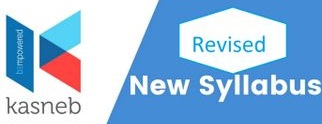Download Strategy, Governance and Ethics September 2015 Pilot Past Paper
Download
Strategy, Governance and Ethics September 2015 Pilot Paper
We are working to provide all the answers to the questions in this past paper. You can contribute in this forum by: posting your suggested answers and voting on the posted answers in the comment box below here.
QUESTION ONE
SGK LTD.
SGK Ltd. was founded P. L. Shah in 1987. The company is in the business of departmental stores, retailing and general merchandising. Since year 2001, the company has been operating at its flagship building SGK piaza. SGK Ltd. has been characterised the presence of a major controlling shareholder. For example, in July 2003, the then Chief Executive Officer (CEO) and chairman, A. K. Singh Shah, the second son of the founder, owned 67.75 percent of the company’s shares. .
In 1998, SGK Ltd. was listed on the National Stock Exchange. However, since year 2003, the Shah family has been trying to delist and privatise the company. After two failed attempts, the Shah family finally succeeded and the company was delisted on 24 September 2008.
(n year 2010. P. L. Shah made an offer to about 500 minority shareholders who had held onto their shares in the delisted company. This offer represented an 18% premium over its market value and well above the price offered to other shareholders for the delisting in year 2010. However, some of these minority shareholders were still unwilling to take up the share buyback offer, and were holding out for a better offer.
Board of Directors
During the third and successful privatisation attempt, the board of SGK Ltd. was chaired Arnold Baraka, a former partner at Success Solutions, an international audit firm. Apart from Arnold Baraka, there were three other directors with experience in accounting, business management and the retail industry Among the four directors, three were serving as non-executive independent directors.
Throughout the previous years, there was at least one Shah family member on the board. However in year 2009, A. K. Shah, the CEO and the majority shareholder of the company since 1998, stepped down from the board, after he was alleged to have been involved in an illegal drug trading scandal. With this development, for the first time in the company’s history, there was no Shah family member on the board.
According to SGK Ltd.’s Corporate Governance Report in 2010. the board would be responsible for enhancing long-term shareholder value and the overall management of the Group. This includes reviewing the Group’s performance, approval of corporate strategies and promoting high standards of corporate governance. The board delegated some of its functions to the board committees, namely the audit committee, nominating committee and the remuneration committee.
Required:
(a) State the legal definition of a majority shareholder. (2 marks)
(b) With reference to the above case:
(i) Discuss four challenges that could face a company as a result of having a major controlling shareholder. (8 marks)
(ii) Explain why the interest of controlling and minority shareholders may diverge in cases where companies have controlling shareholders. (8 marks)
(iii) Explain what a non-executive independent director is. (2 marks)
(iv) Evaluate why independent directors should be primarily concerned with the interests of the minority shareholders. (10 marks)
(v) With regards to the privatisation attempts SGK Ltd., suggest improvements that would help protect minority shareholders in the future. (10 marks)
QUESTION TWO
(a) Explain the universality of the management concept. (5 marks)
(b) Define the term ”strategy” and differentiate between business and corporate strategies. (5 marks)
(c) Illustrate how a SWOT analysis can be useful for both internal and external organisational analysis. (5 marks)
QUESTION THREE
(a) Discuss how downsizing can be used organisations today to sustain a competitive advantage. (6 marks)
(b) Explain the four major steps involved in the strategy formulation process. (9 marks)
QUESTION FOUR
(a) Define “corporate governance” and explain why it is used to monitor and control managers’ strategic decisions. (5 marks)
(b) You have recently been appointed as a member of the Board of Directors of ABC Training Institute. Describe three roles that you are required to play. (6 marks)
(c) State any four pillars of good governance. (4 marks)
QUESTION FIVE
(a) justify with a relevant example the use of avoidance as a risk response. (5 marks)
(b) Corporate social responsibility has been viewed some people as good forum for stakeholder interactions.
Suggest four reasons for this stance. (4 marks)
(c) Differentiate between legal and illegal insider trading. (6 marks)
